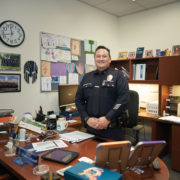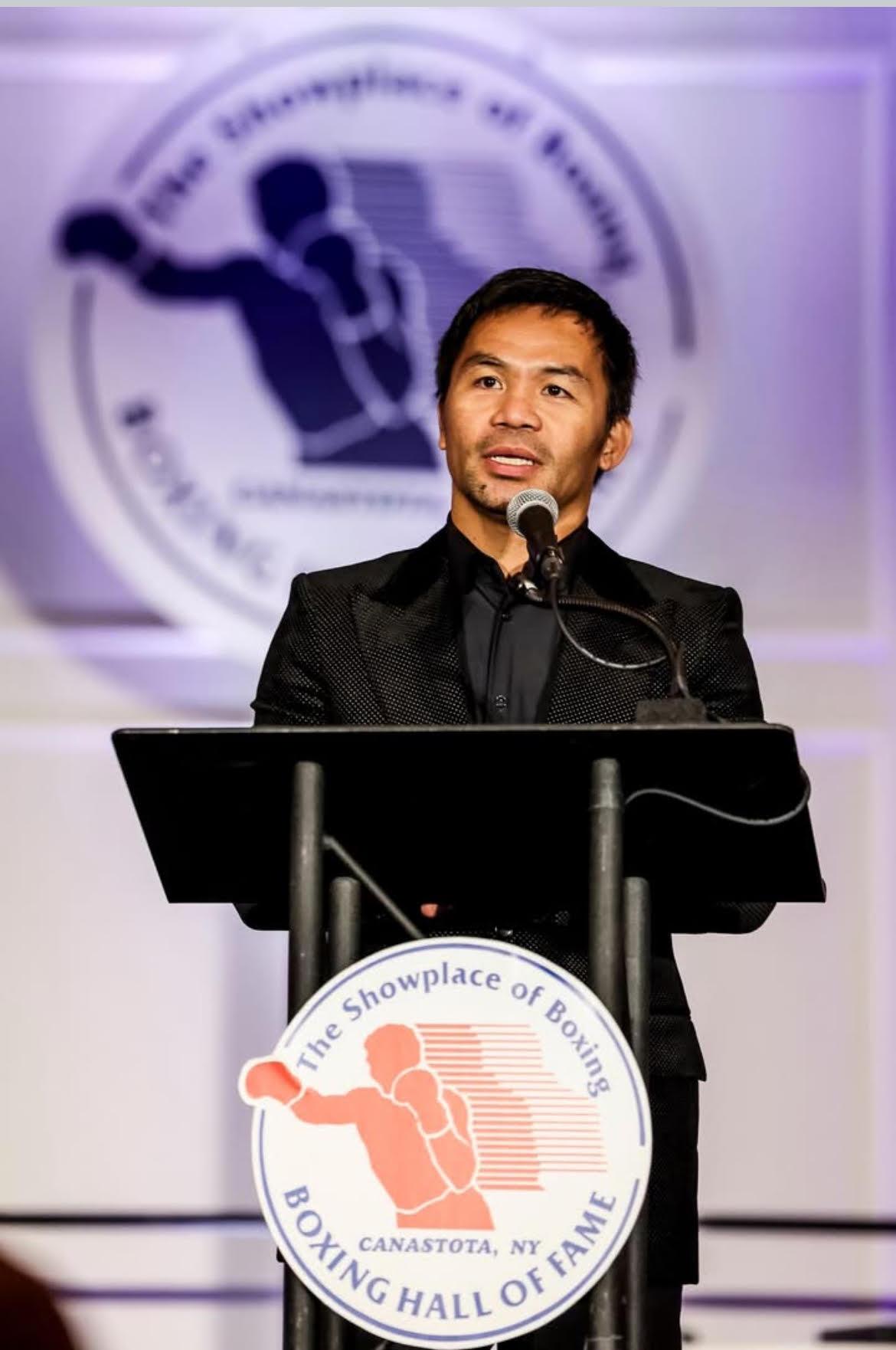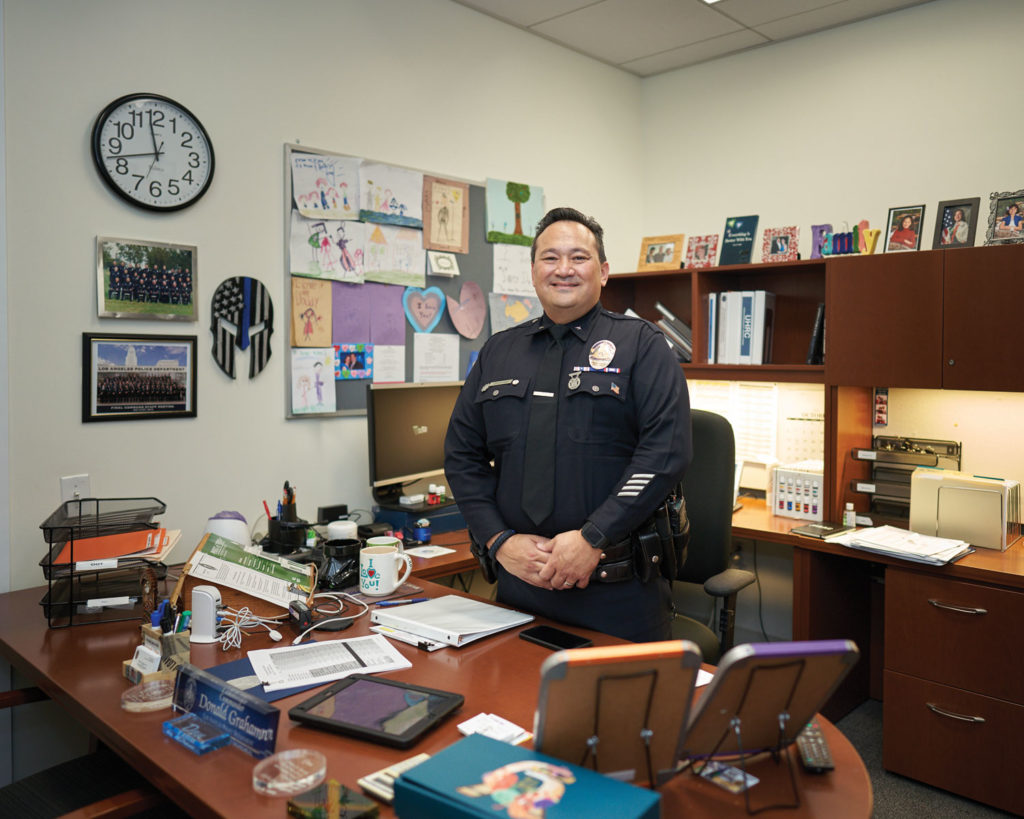
There’s a new police commander in Los Angeles, and for the first time in the department’s 150-year history, it’s a Filipino American.
Donald Graham, a 24-year veteran of the LA Police Department, was recently appointed to commander rank and to be the department’s coordinator in tackling the city’s homeless problem.
Timed with Fil-Am History Month, Graham was formally recognized earlier this October at a reception hosted by several groups like the Law Enforcement Association of Asian Pacifics, Filipino Association of Law Enforcement Officers, and the LA Filipino Association of City Employees.
“I don’t speak Tagalog and I might be a little light in the skin tone, but I know everything I need to know to be a Filipino American and I am proud to be the first Filipino American commander for the Los Angeles Police Department,” he told attendees, who included a mix of LAPD officials, Fil-Am city commissioners, and community members.
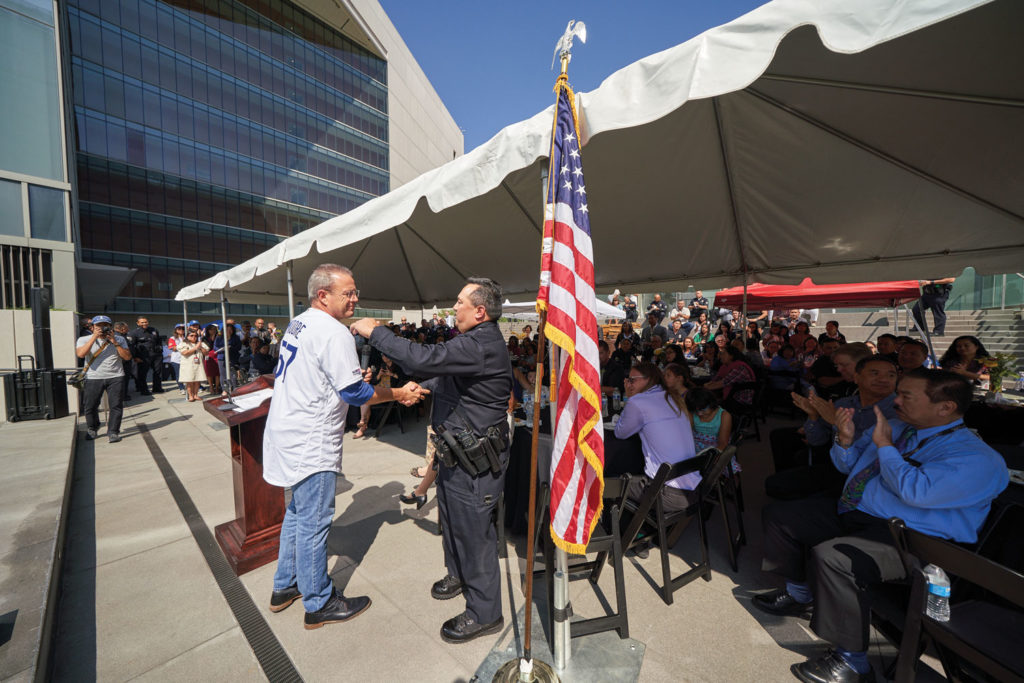
At the celebration, LAPD chief Michel Moore praised the commander’s record — including back in 2003 when he witnessed Graham’s pacifying and problem-solving skills by designating ‘picket majors’ who would be the bridge between store management and the strikers during the Southern California supermarket strike.
“We saw a strike in the days and weeks after that largely went uneventful because for the most part, the picket lines with the picket majors took the responsibilities of working with store management at those sites and policing did what policing does best: We set a solution and step back and let people work together,” the police chief said.
He added, “Here is a man who, in everything that has followed, has been willing to step into difficult situations and not get discouraged.”
From New Jersey to LA: Leading with heart, for family and community
In 1984, Graham was a teenager when his mother Amalia moved him and his two siblings from Bayonne, New Jersey to Los Angeles’ San Fernando Valley. She raised the children as a single mother, while working as a nurse.
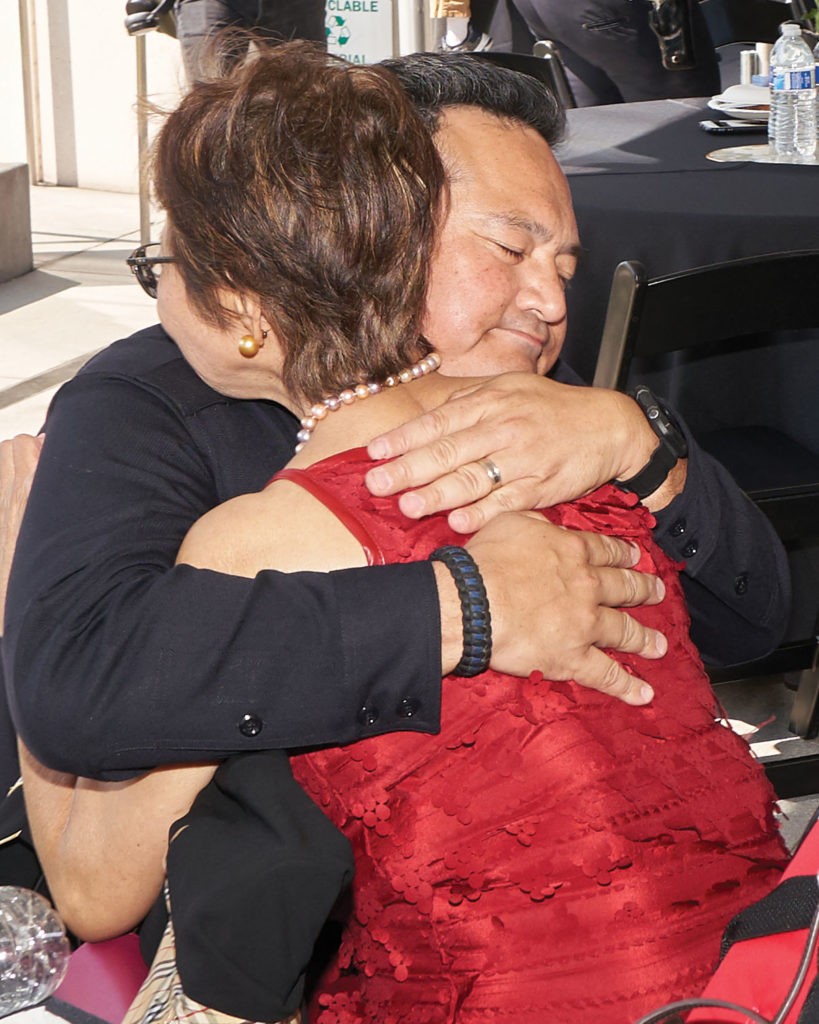
“Because of my mom…I know Filipinos work hard and I know Filipinos fight,” he said. “I know most importantly, that we lead with our hearts and not just for our family, but for everyone around us, for our community and it doesn’t matter the racial divide.”
It’s a relatable story that his mother, like many Filipina matriarchs, had hoped he would enter the medical field. But being in LA, music and acting were more appealing to him. Though, that changed when he entered Los Angeles Valley College and shifted to history and political science instead.
“To pass the time,” Graham said, he worked part-time at the campus police department.
“As it turned out, the people that worked there, the officers that worked there were all retired LAPD officers and were some of the most high-quality people I’ve ever met in my entire life, people who dedicated their efforts not to blaming people, but to solving problems,” he recalled in his interview with the Asian Journal.
He applied and was accepted into the LAPD Academy, where he graduated from in the fall of 1995. He completed his probation in the Pacific Division, before being assigned to the Devonshire station, which covers Canoga Park, Chatsworth, Granada Hills, Northridge, North Hills, Porter Ranch, West Hills and Winnetka.
“I thought I was going to do this for about 10 years…take my pension and then walk away,” Graham said. “But like any corny story, you fall in love and I fell in love with doing this job.”
Graham spent nine years as an officer in the Devonshire territory before being promoted to sergeant in the Southeast Division in 2006, sergeant II as a commander’s aide in the office of operations two years later, and then lieutenant in 2012 in the West Valley Patrol Division.
In the last five years, the Fil-Am rose the ranks from captain to area commanding officer in North Hollywood before his current position.
Generation’s ‘social fight’
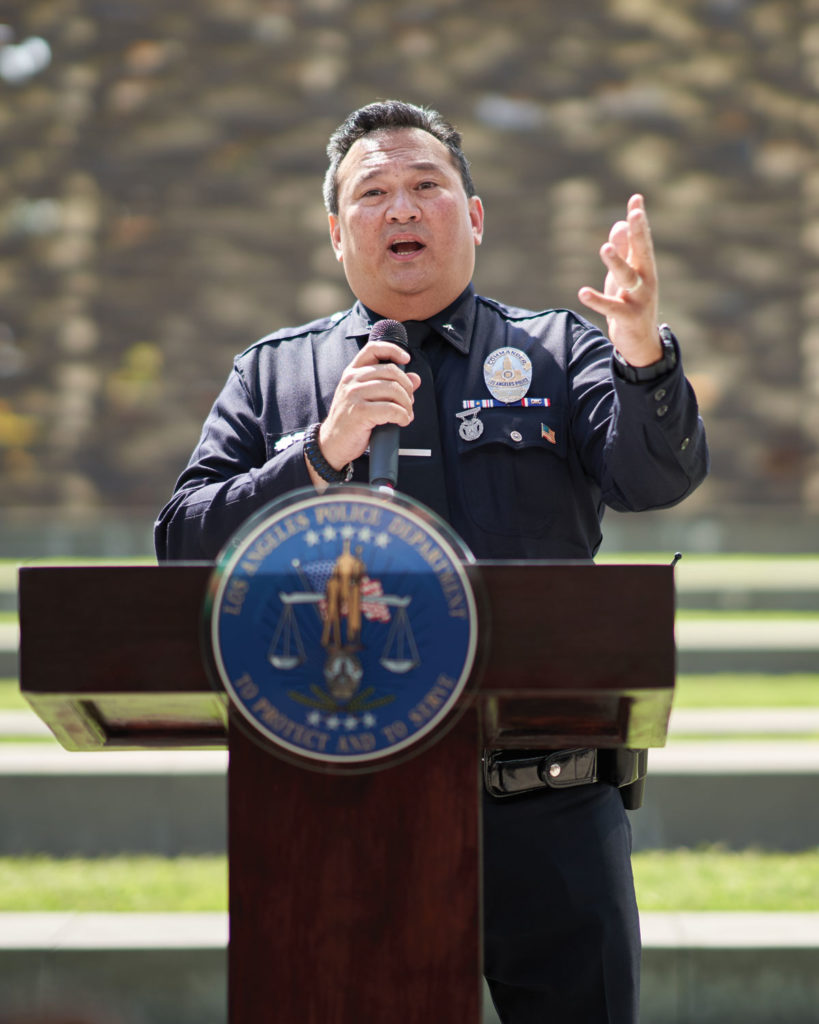
Graham’s appointment comes as California has the country’s largest homeless population, even recently catching the attention of President Donald Trump who called it “a disgrace to our country.” The city of LA alone experienced a 16% increase this year with 36,000 individuals considered homeless.
“[Graham] was one of the first people to understand the challenges that you have with homelessness from public safety, both those as individuals experiencing as victims as well as people who hide within that population and prey upon others experiencing homelessness or people in communities,” Moore said of the decision to hand the responsibility to Graham. “It was also his ability to recognize that it’s really not going to be a policing solution. It’s going to be a solution with the whole of government and the whole of community.”
During his time as captain for the city’s Central Patrol Division in 2014, Graham had experience with the issue as he was part of the team that helped restructure the Homeless Outreach Proactive Engagement (HOPE), a task force under the department that works with other city services to provide resources to homeless individuals, as well as to maintain sanitary and safe streets.
“It is the social fight of our generation so the fact that the chief of police has entrusted me to help him provide the leadership for the organization through this time is a huge honor for me,” Graham said. “I know it’s not going to be an easy job. I didn’t take this job because it’s easy.”
With regard to how to mitigate the city’s homeless population, he will be the department’s representative and make recommendations at these discussions and ensure that the LAPD is consistent in carrying out the policies.
“We have to be able to be conversant in the laws, policies and philosophies of this homeless fight so we can have a good, engaging conversation with our community and help them with their expectations of what the police can do,” he said.
One message Graham intends to get across is that calling the police on the homeless won’t fix the problem.
“It’s unfortunate that many people in our community believe that you can pick up the phone, call the police and make the homeless people disappear,” he said. “That’s not going to happen. It’s not going to happen because of the legal environment that we exist in and it’s also not going to happen because we can’t build 54,000 jail cells.”
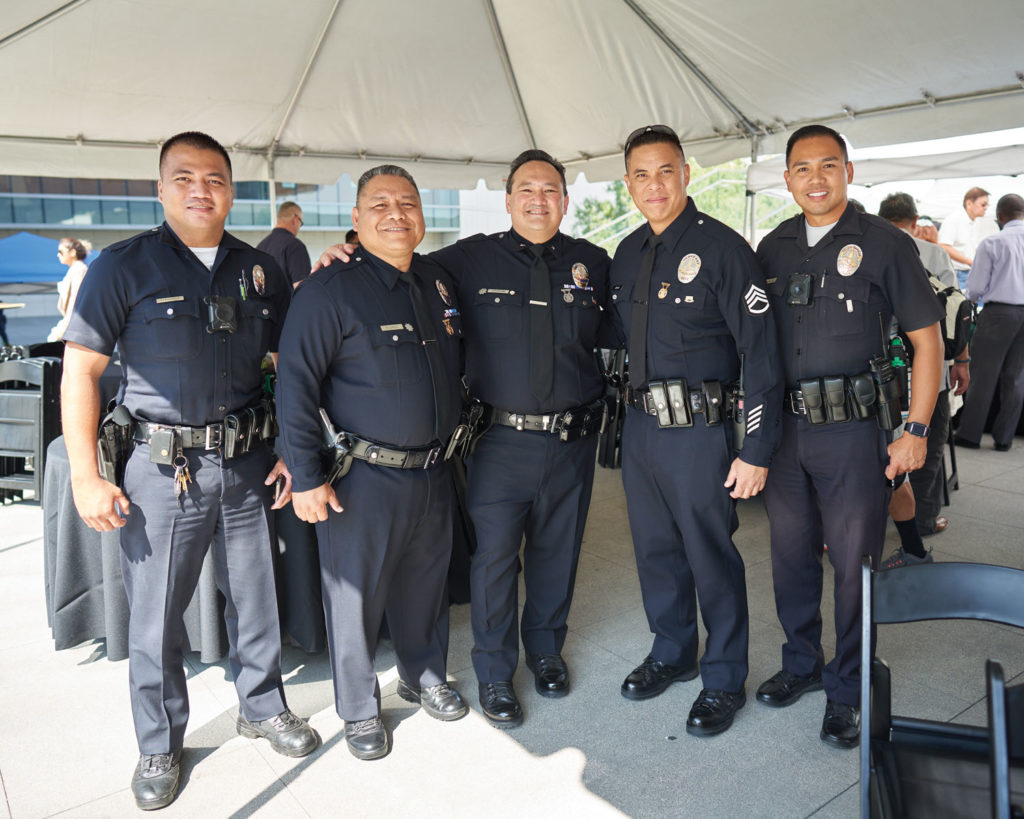
When asked about his accomplishments during his nearly three decades with the department, Graham said it’s being able to mentor officers early in their careers and help people stay out of trouble after encounters with the law.
“As a Filipino American, as a New Jersey American, I can’t imagine having done anything else with the last 24 years of my life. This is the most incredible job, not just because it’s different every day, not just because there’s this visceral idea that people who prey on other people are the people who are afraid of us. Trust me, it’s a visceral feeling. But really what is the key to this job is how many people who have come back and have said ‘thank you,’” he said.
With Fil-Ams considered one of the largest ethnic groups in LA, Graham said that should be reflected in the police force as well. Currently, there are 241 Fil-Am officers in the department.
“If you know a young Filipino American who is thinking of a career in law enforcement, don’t tell them to go watch TV because every episode of whatever television program you watch is not going to give you a real look at what police work is,” he said, suggesting those interested to participate in a ride-along to shadow officers on duty.
“When I think about that and my responsibility as a Filipino American in this role, that is what warms my heart because I have an ability to give back what I have been given,” he added.


